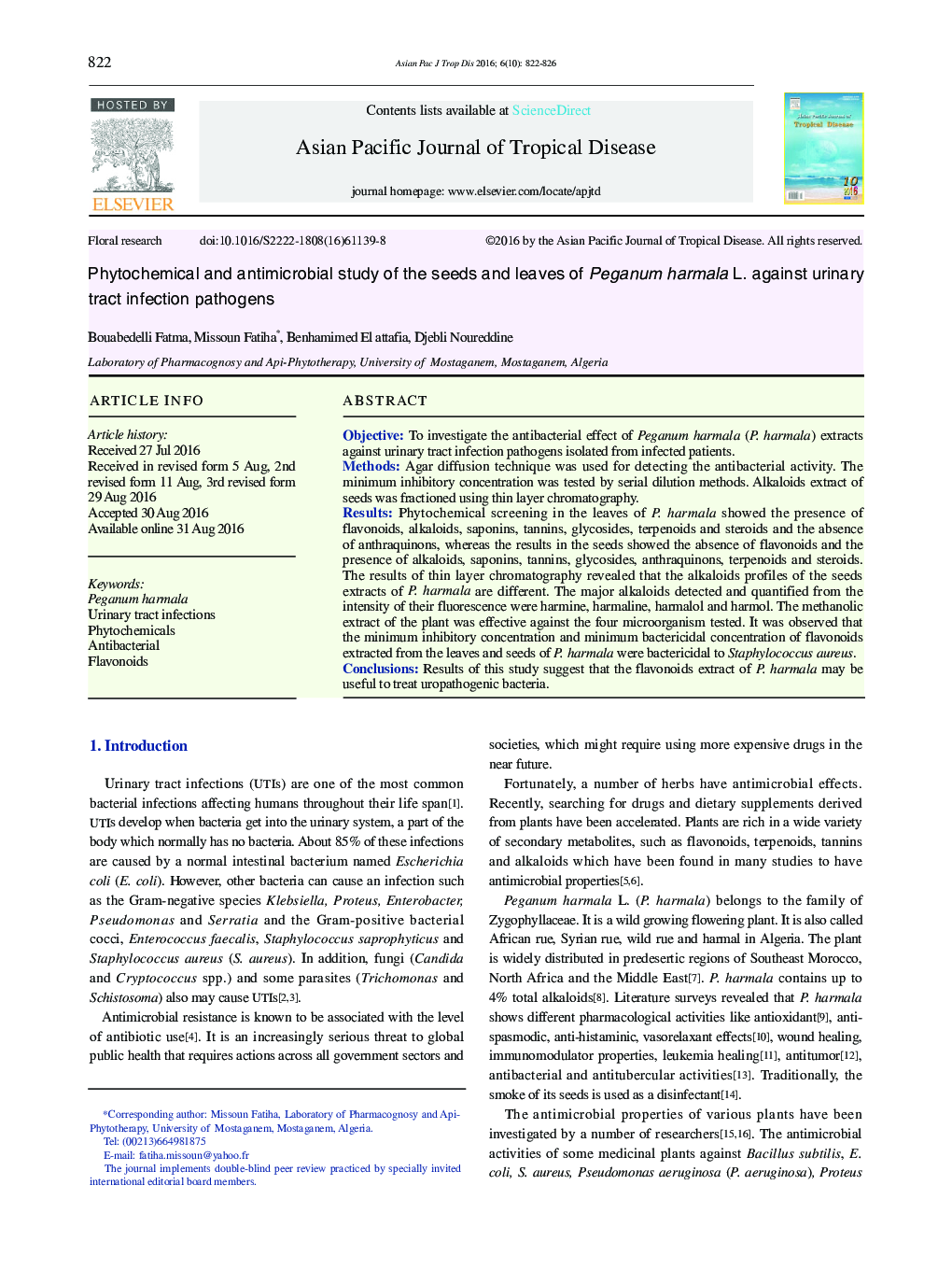| Article ID | Journal | Published Year | Pages | File Type |
|---|---|---|---|---|
| 3453795 | Asian Pacific Journal of Tropical Disease | 2016 | 5 Pages |
ObjectiveTo investigate the antibacterial effect of Peganum harmala (P. harmala) extracts against urinary tract infection pathogens isolated from infected patients.MethodsAgar diffusion technique was used for detecting the antibacterial activity. The minimum inhibitory concentration was tested by serial dilution methods. Alkaloids extract of seeds was fractioned using thin layer chromatography.ResultsPhytochemical screening in the leaves of P. harmala showed the presence of flavonoids, alkaloids, saponins, tannins, glycosides, terpenoids and steroids and the absence of anthraquinons, whereas the results in the seeds showed the absence of flavonoids and the presence of alkaloids, saponins, tannins, glycosides, anthraquinons, terpenoids and steroids. The results of thin layer chromatography revealed that the alkaloids profiles of the seeds extracts of P. harmala are different. The major alkaloids detected and quantified from the intensity of their fluorescence were harmine, harmaline, harmalol and harmol. The methanolic extract of the plant was effective against the four microorganism tested. It was observed that the minimum inhibitory concentration and minimum bactericidal concentration of flavonoids extracted from the leaves and seeds of P. harmala were bactericidal to Staphylococcus aureus.ConclusionsResults of this study suggest that the flavonoids extract of P. harmala may be useful to treat uropathogenic bacteria.
